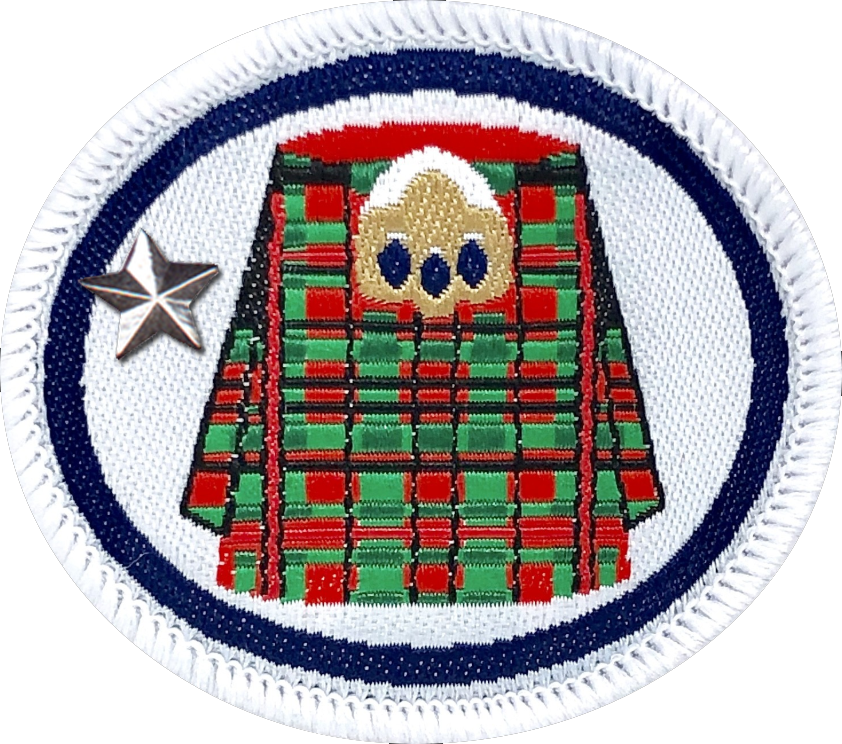AY Honors/Kilts - Advanced
| Kilts - Advanced | |
|---|---|
| Regional | |
Skill Level ??? | |
Approval authority British Union | Year of Introduction 2019 |
AY Honors/Kilts - Advanced/Overview
The most challenging requirement of this honor is probably this:
8. Do one of the following to see how tartans and kilts are made:
- a. Take a mill tour at the Lochcarron of Scotland Visitor Centre in Selkirk.
- b. Visit the Lochcarron Weavers Shop in Loch Carron in Wester Ross, Highlands.
- c. Visit a local kilt maker.
- d. If you live outside of the UK and none of these are possible, watch documentary videos on the subject and interview a kilt maker by phone or by email.
1. Have the basic Kilt honour.
2. Have the Tartan honour.
3. Investigate the history of the kilt.
4. Know the historic Gaelic names for the different types of kilts.
5. Be able to model how to put on a Great Kilt.
6. Be able to explain the Dress Act of 1776 and Diskilting Act of 1782. Know whose romantic vision of Gaelic culture and Highland dress brought about the revival of the kilt.
7. Be able to name/identify kilt accessories, such as: sporrans, kilt pin, sgian dubh (pronounced skeean doo), and ghillie brogues.
8. Do one of the following to see how tartans and kilts are made:
- a. Take a mill tour at the Lochcarron of Scotland Visitor Centre in Selkirk.
- b. Visit the Lochcarron Weavers Shop in Loch Carron in Wester Ross, Highlands.
- c. Visit a local kilt maker.
- d. If you live outside of the UK and none of these are possible, watch documentary videos on the subject and interview a kilt maker by phone or by email.
9. Wear a men’s kilt, ladies tartan skirt, or an equivalent to an event.
10. What spiritual application can you draw from kilt-making, history and evolution of the kilt, or another aspect of this honor? Write a devotional thought from this and be sure to include a corresponding Bible verse with your thought.
1
2
3
4
5
6
7
8
8a
8b
8c
8d
9
10
References
Content on this wiki is generated by people like you, and no one has created a lesson plan for this honor yet. You could do that and make the world a better place.
See AY Honors/Model Lesson Plan if you need ideas for creating one.


